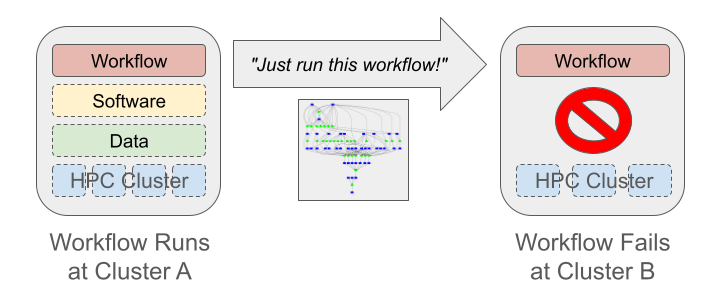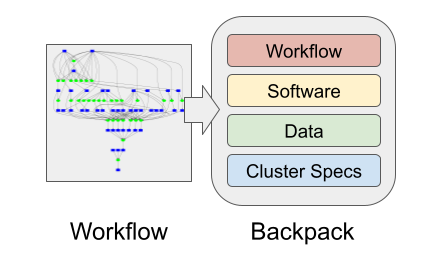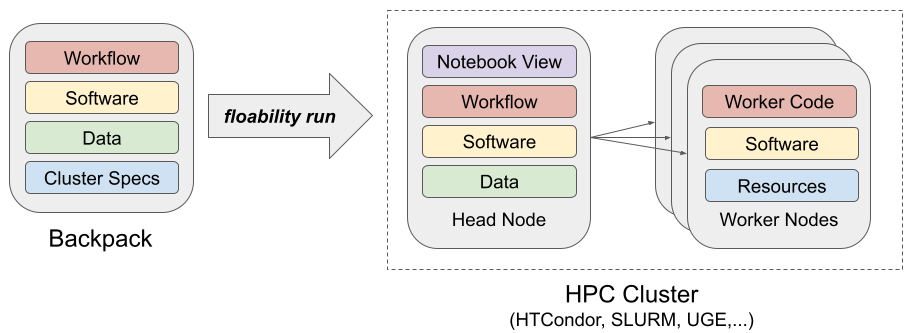The Floability Project
Floability public web page.

The Floability Project is an NSF funded research project to enable the rapid and portable deployment of notebooks expressing complex scientific workflows across a wide range of cyberinfrastructure. The key technical challenge is that workflows are incomplete: the code by itself cannot be moved between facilities without accurately capturing the software dependencies, required datasets, and capabilities of the underlying cluster hardware. Our research team at the University of Notre Dame, the University of Missouri-Columbia, and the University of Illinois is developing solutions to discover, express, and deploy the complete set of dependencies needed for complex scientific workflows.
A plain workflow by itself is not portable across facilities:

A complete workflow is captured in a floability backpack:

|
|
The floability software deploys a backpack into an HPC facility:

Floability builds on a variety of open source technologies, including Jupyter to provide interactive notebook environments, Sciunit to discover software and data dependencies, TaskVine to express and execute workflows, and Conda Forge to provision and deploy software environments.
 |
This project is supported by the U.S. National Science Foundation under grant OAC-2411436, CSSI Frameworks: From Notebook to Workflow and Back Again |